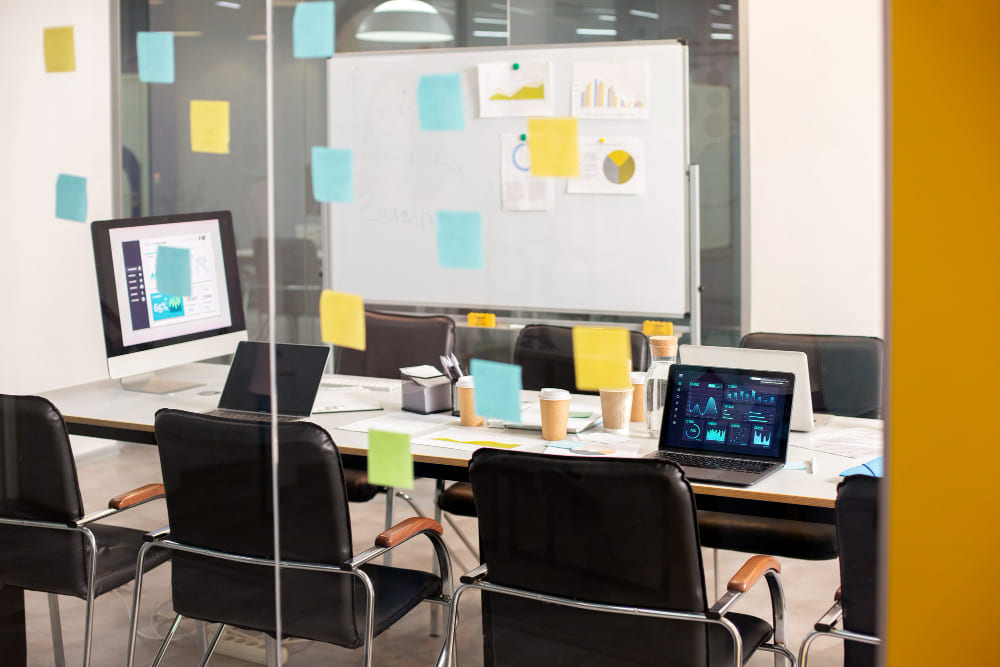In today’s fast-paced business environment, the ability to adapt is crucial to maintaining competitiveness and fostering innovation. As companies strive to remain agile and responsive to an ever-changing landscape, the workspace has become a focal point for transformative design. Modular office solutions represent a significant shift in how work environments are conceived and constructed, offering flexible and dynamic setups that cater to the diverse needs of a modern workforce. These versatile solutions are not just a passing trend; they reflect a profound change in workplace philosophy, emphasizing flexibility, collaboration, and productivity.
These modular approaches provide immediate benefits in terms of functionality while also promoting long-term sustainability by minimizing waste and supporting green initiatives. As businesses expand and evolve, office environments must do the same. Modular office solutions allow companies to reconfigure and optimize their spaces quickly and cost-effectively, adapting to fluctuating team sizes, new technologies, and changing workflows. Modular offices are redefining workplace productivity and satisfaction with their unique capacity to create efficient and engaging spaces. Let’s delve into the multifaceted benefits and strategies for implementing such transformative solutions in the modern office setting.
Benefits of Modular Offices
Modular offices are ingeniously designed to offer unrivaled flexibility, scalability, and efficiency, making them ideal for forward-thinking organizations. One of the primary benefits is that they can be tailored to fit various business needs, from creating open, collaborative spaces conducive to team projects to integrating private, soundproof office booth for activities requiring intense concentration. This adaptability ensures that office environments can evolve alongside organizational growth and changing priorities, providing a workspace that is always fit for purpose.
Another significant advantage of modular office solutions is their cost-effectiveness. Since these components are often prefabricated, they require less time and resources to assemble compared to traditional office setups. This frequently translates into substantial cost savings for businesses during initial construction and in terms of maintenance and reconfiguration. The ability to quickly modify layouts with minimal disruption to ongoing business operations allows companies to remain agile and responsive, capitalizing on opportunities for growth without the delays commonly associated with traditional office remodeling.
Sustainability is an integral aspect of modular office design, as many solutions extensively use eco-friendly materials and construction methods that significantly reduce environmental impact. This aspect aligns with corporate social responsibility goals—appealing to increasingly eco-conscious employees and clients—and results in a more sustainable business model in the long run. Businesses committed to sustainability find modular solutions particularly appealing, as they integrate seamlessly with greener initiatives while supporting the creation of healthier, more productive work environments.
Designing the Perfect Modular Office
A successful modular office design involves thoughtful planning and understanding the workforce’s unique and evolving needs. Critical elements of an effective design include flexible partitions that allow for dynamic space usage, ergonomic furniture that promotes health and comfort, and integrated technology solutions that foster collaboration and connectivity. These components come together to create a functional and aesthetically pleasing environment, offering employees a space that inspires creativity and productivity.
The integration of advanced technologies is a crucial consideration in modular office design. From intelligent lighting systems that adjust to the time of day and the preferences of occupants to state-of-the-art communication tools that facilitate seamless collaboration across teams, technology is essential in enhancing productivity and creating a streamlined work experience. Ensuring these elements are well-integrated into the office design allows businesses to remain competitive and innovative in an increasingly digital world.
Moreover, the modular office layout should reflect the company’s culture and values. By aligning the physical space with organizational identity, businesses can create work environments that support day-to-day operations and reinforce the company’s mission and ethos. This alignment fosters a sense of community and belonging among employees, leading to higher levels of engagement and performance. Thoughtful design that considers employees’ emotional and social needs can transform an office into a place where people look forward to coming in daily, boosting morale and productivity.
Promoting Health and Wellness
The modern workforce values health and wellness highly, and modular office solutions are exceptionally well-equipped to support these priorities. Modular offices can significantly enhance employees’ well-being by thoughtfully incorporating abundant natural light, high-quality air circulation, and ergonomically designed workstations. This promotes a healthier, more balanced work environment that nurtures physical and mental well-being.
Spaces that accommodate various work styles, including quiet zones for focused tasks and collaborative areas for team projects, empower employees to choose environments that best suit their individual needs. This flexibility improves focus and concentration and reduces stress, increasing overall job satisfaction. Employers increasingly recognize the link between a well-designed workspace and employee well-being, understanding that happier, healthier employees are more productive and engaged.
By investing in modular solutions that prioritize health and wellness, businesses can foster a positive work culture that attracts and retains top talent. In a competitive job market, offering a work environment that promotes well-being can enhance employee satisfaction and loyalty. Furthermore, employees who feel cared for and supported are more likely to contribute positively to the organization, leading to improved performance and business outcomes.
Conclusion
Modular office solutions are not merely a trend; they represent a fundamental evolution in our workspace design. These solutions meet modern businesses’ diverse and shifting needs by offering adaptable, sustainable, and functional environments. As companies embrace these transformative spaces, they address immediate challenges such as space and resource optimization and prepare themselves for future growth and sustainability.
Creating flexible, engaging, and supportive spaces is essential to maintaining a motivated and effective workforce in an era where the lines between work and personal life continue to blur. Modular offices provide a pathway to achieving this balance, empowering businesses to navigate change with confidence and foresight. Investing in modular design is a strategic business decision and a commitment to fostering a dynamic work environment that supports innovation, productivity, and employee well-being. In doing so, companies are well-positioned for continued success and resilience in an ever-evolving global landscape.




